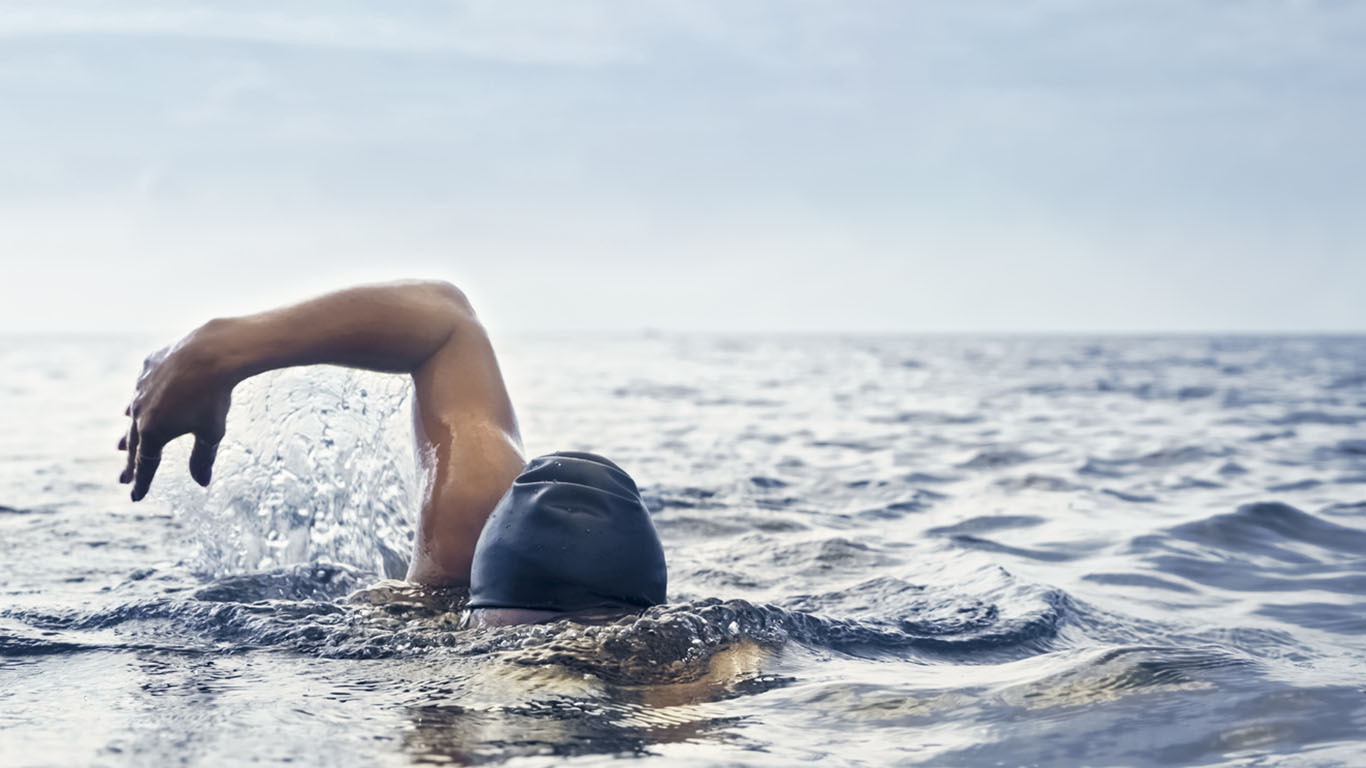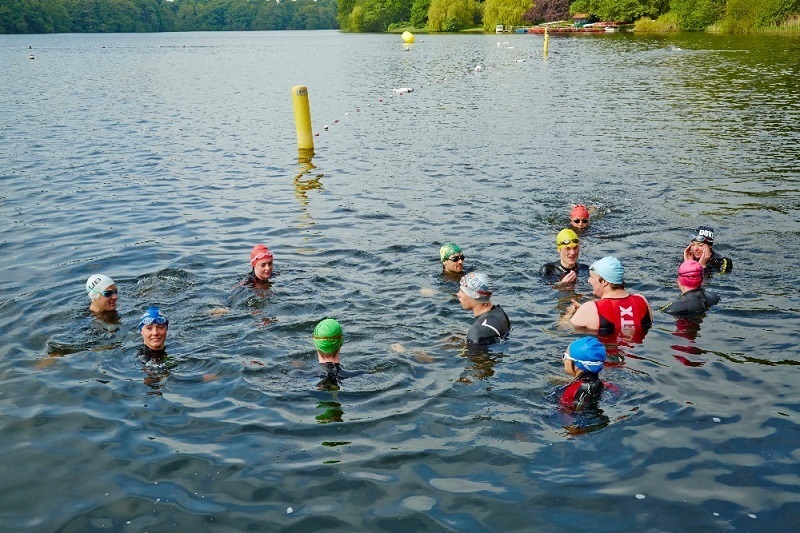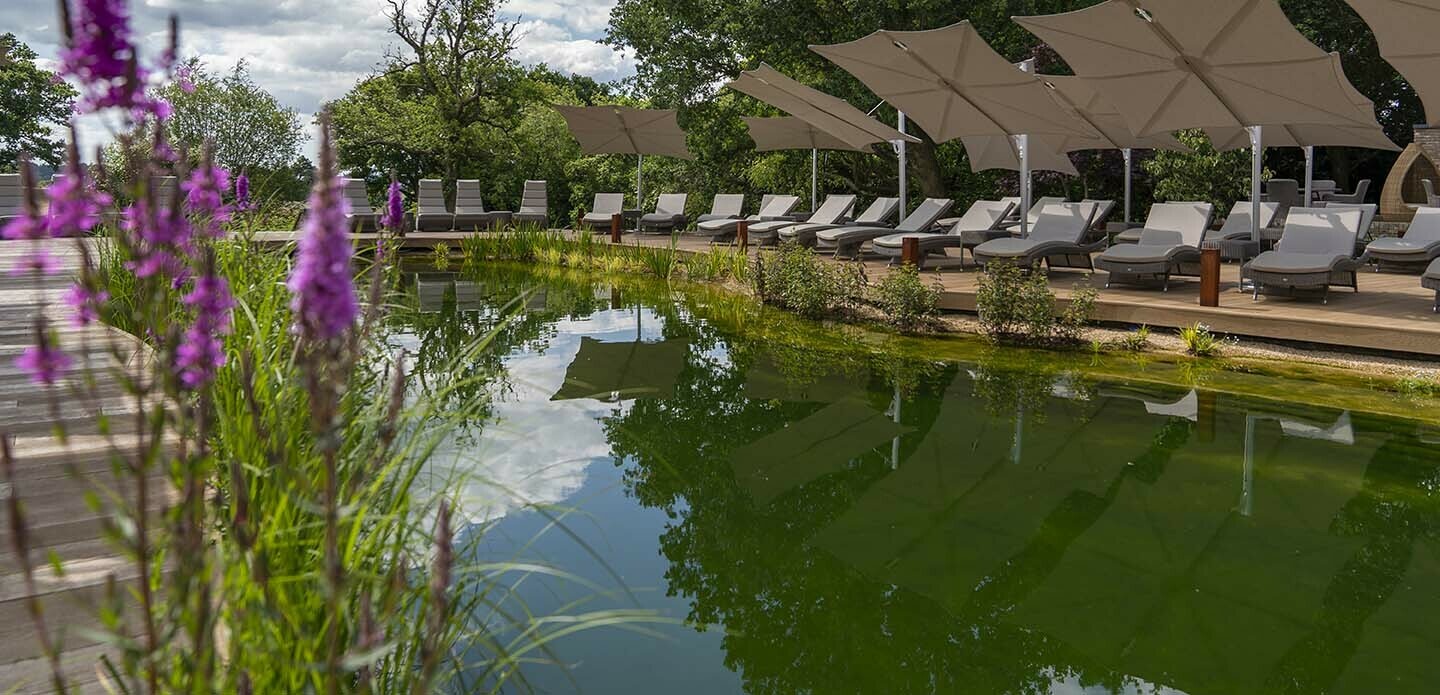Every morning, as most of us dismiss our alarms for extra cosy duvet time, groups of wild swimmers around the country meet on the shores of beaches, lakes and rivers eager to partake in a bracing plunge.
Once the pursuit of an eccentric few, wild swimming’s popularity bloomed in the pandemic and is now a national obsession. In summer, bathing in natural pools and oceans seems like a lovely idea but in winter, it seems positively masochistic.
So why do so many people do it?
It creates a natural high
Swimming in cold water releases endorphins (happy brain chemicals), triggered in response to pain. Lots of swimmers rave about 'the buzz': one compared the entire experience to a hangover in reverse: pain first, high after. If you are feeling a little ‘numbed out’ or beset with brain fog, wild swimming will make you feel awake and alive. To this end, wild swimming can be extremely addictive.
It boosts your immune system

Studies have shown immersing yourself in cold water increases your white blood cells and improves circulation. Over time, your body becomes better at activating its defences. Other health benefits for those suffering with arthritis, menopausal symptoms, MS and migraines are currently being studied at the University of Portsmouth.
It reduces stress and improves mental health
A daily dip into icy waters is actually de-stressing; the theory being that the shock of icy water better prepares us for other stress responses, including depression or anxiety. Indeed, wild swimmers tend to be more relaxed when facing challenges, and a 2018 case study in the British Medical Journal found that regular open water swimming helped treat depression.
It’s sociable

All of the above could, in theory, be achieved in a cold shower on ones’ own, a ritual popularised by Wim Hoff with hundreds of benefits. But it’s the group aspect of wild swimming that makes it more enjoyable, supportive and special. You’re more likely to drag yourself out on a winters day if you are meeting a bunch of people you like – plus, it’s a great conversation starter at parties.
It creates a connection with nature
Whether you are in a group or a lone wild swimmer, as was the late naturalist Roger Deakin, the beauty of being out in the wild is a huge part of its appeal, even on drizzly days. Bathing in wildness connects us with a deeper, more primal part of our nature, lost to the numbing comforts and technological abstractions of the modern world.
As well as benefits, there are dangers to be aware of when swimming in wild, open waters so if you are mulling over whether to join a Christmas Day swim, read the following advice:
It will hurt. Forget any romantic images of wild swimmers with beatific smiles. Your first plunge will feel like a violent physical assault. It will knock the wind out of your lungs and rip into your skin: you will probably cry out in agony. If you have a health condition, you should check with your doctor that it won’t kill or hospitalise you. Seriously.
Do not dive in. When entering dark, cold water the impulse is to jump in and get it over with. Don’t risk this, the shock could be too much for your system. A slow immersion is best at first, even if each step makes you want to run back out, screaming. Let each part of your body adapt then take another step. To combat and control the ‘gasp’ reflex, breathe out slowly and firmly. Stay in the shallows until you steady your breathing rate. Some recommend dabbing your pulse points, face and neck with water as you wade in. Others suggest starting in spring and acclimatising throughout the year – or taking cold showers every morning to prepare.
Don’t stay in too long, especially not for your first time. The rule of minutes-to-degrees is not for beginner swimmers. If you move from immersion to actual swimming, some swimmers count in strokes, aiming at most for 10 or 20 strokes on a winter swim. Staying in too long increases the risk of hypothermia and – let’s get real about this – death. You need to know your own limits and not follow the herd.
Dress appropriately. Even if you’re a purist who goes in without a wetsuit, in winter it is sensible to wear a hat, gloves and booties. Lots of heat is lost through your extremities and getting in and out is made easier by having something on your feet. It’s a safety rather than a warmth issue. Also popular are Dry Robes – giant coat-towels to wrap yourself in immediately upon exit. Thanks to the fashion for wild swimming, they come in funky colours as well as traditional black.
Warm up slowly. Don’t have a hot shower immediately after – it can cool your core and be extremely dangerous. Instead, wrap up warm in lots of layers and sip a warm drink. Don’t hang about on the beach too long gossiping either – get into the warm.

If you still wish to immerse yourself in the wonderful world of wild swimming or find a local group, check out wildswimming.co.uk for more info. Still feeling cautious? Try out the natural pool at South Lodge (pictured above) – if you can bear that, you’re probably a natural.

Savant Spy
8th December 2021
Spy Likes:
Clever, inspiring design, sublime views, a vast, clean and empty pool, solitary relaxation areas to read, write or commune with my muse.
Spy Dislikes:
Small talk, discussions about spirituality or astrology, any products containing tea tree oil or aloe (sadly am allergic), busy pools where you can’t do laps.
